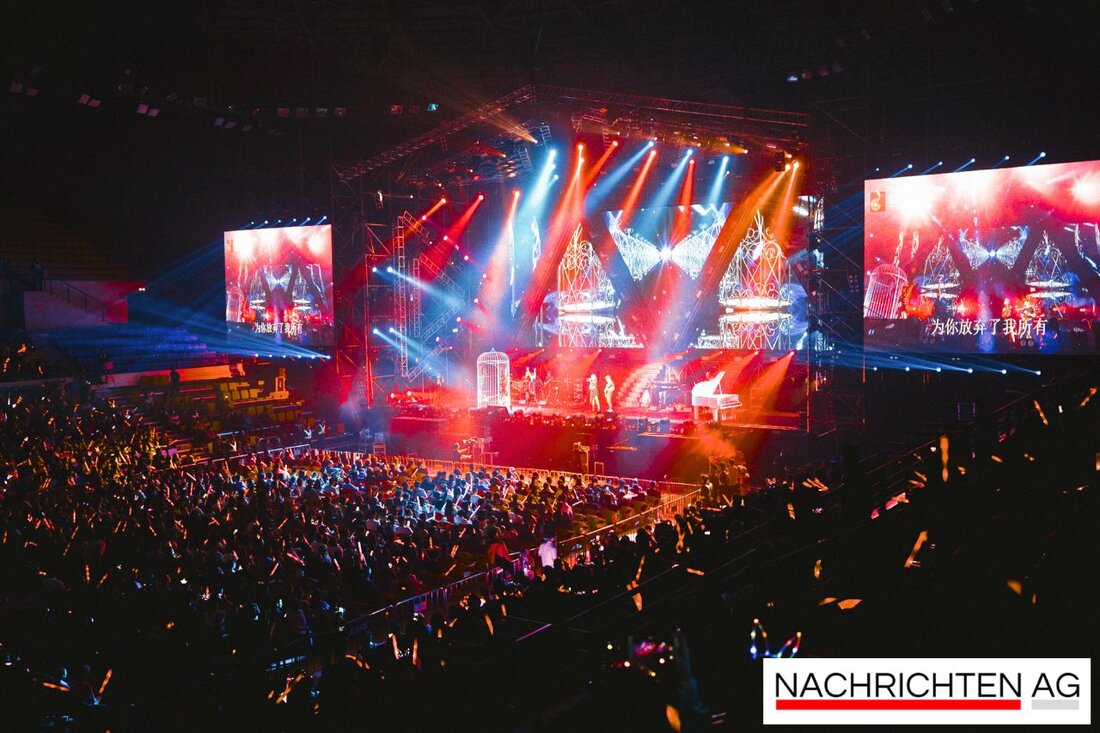Rio Reiser: The legendary performance in East Berlin when the Wall fell!
Experience Rio Reiser's historic 1988 concert in East Berlin, which united political resistance and musical freedom.

Rio Reiser: The legendary performance in East Berlin when the Wall fell!
On October 1, 1988, the rock scene in the GDR experienced an unforgettable evening when the legendary Rio Reiser performed at the sold-out Werner-Seelenbinder-Halle in East Berlin. Reiser, who conquered the charts with his band “Ton Steine Scherben” and his anthem “König von Deutschland” in 1986, came from Kreuzberg, West Berlin, and was a symbol of resistance and change at a time when political lethargy in the GDR was palpable. This reports rbb online.
The atmosphere in the hall was electric as fans of the band sang along to both the old and new songs at the top of their voices. The song “The dream is over” was particularly emotional, in which the lyrics reflected the longing for a different reality and confronted those present with the question: “Is there a country on earth where the dream is reality?” The audience's celebratory response, "It's not this country!", illustrated the messy situation in the GDR and the greed for freedom and change. The performance was almost like a political manifesto that put the events of the time into words, as in archive.org documented.
A performance in a politically harsh environment
At that time, Rio Reiser was given the opportunity to play in East Berlin at the invitation of the FDJ. The concert took place within the political framework of the GDR, and some of his political songs such as “No Power for Nobody” were not played in order to avoid misunderstandings with those in power. However, the audience was unimpressed and waved anarcho flags during the performance, which was a strong sign of the desire for change. Reiser also played his hit songs “Let us be a miracle”, “Stowaway” and “Junimond” and made the hearts of his listeners beat faster. The spectacle was repeated on October 2nd with an almost identical program and audience reactions, demonstrating the great need for such cultural events in the GDR.
The late 1980s were characterized by boredom and stagnation in the GDR, but the rock scene still flourished. According to the Federal Agency for Civic Education, rock music was an important element of youth culture that was recognized by both those in power and the population. The change from Walter Ulbricht to Erich Honecker led to the promotion of rock music in the 1970s, with the SED creating works that were intended to introduce young people to the socialist utopia. Still, the industry was closely monitored, and many musicians had to obtain permission to perform in public to avoid being perceived as a threat to the socialist order, as in bpb.de is executed.
Aftermath and Ostalgie
The aftereffects of Reiser's appearance are still strongly felt today. The so-called “Ostalgie”, a nostalgic feeling towards the GDR, has developed into an interesting phenomenon since the fall of communism, which is expressed not only in the form of events and fetes, but also through markets and amusement parks. These memories are complemented by economic success: The Bertelsmann Group achieved immense sales with the former Eastern pop and rock productions, thus showing how timeless and strong the messages of this music are.
Overall, it can be said that Rio Reiser's performance in East Berlin was much more than just a concert. It was an important cultural event at the right time and brought to the stage many politicized thoughts and hopes that were in the air. The memories of this time and Reiser himself live on in the music and in the hearts of many people who strived for freedom and change.

 Suche
Suche
 Mein Konto
Mein Konto